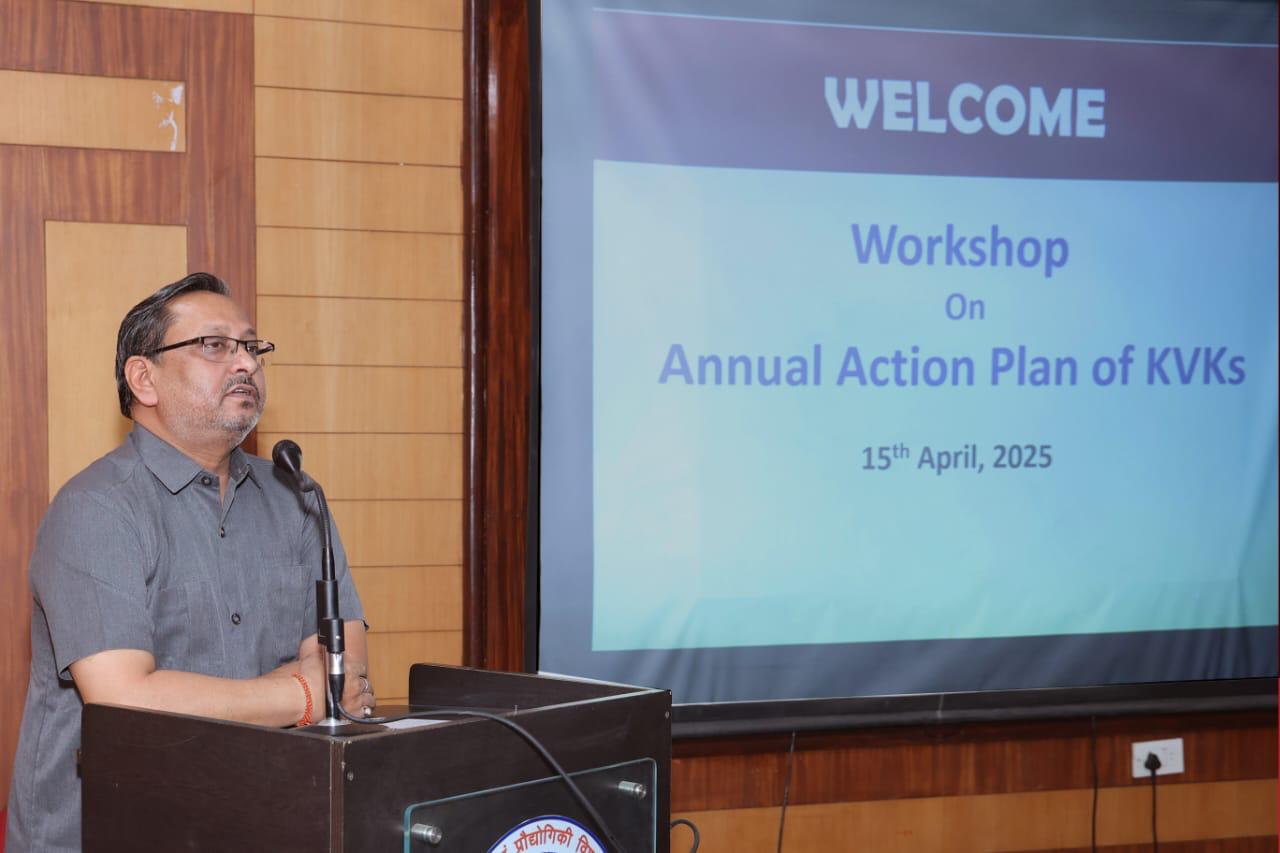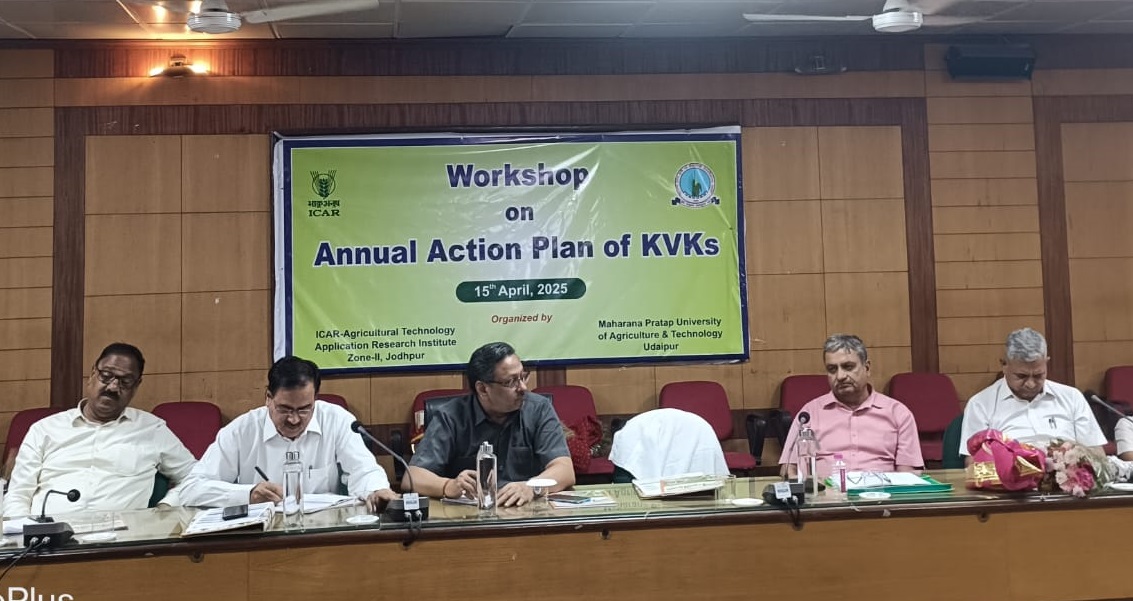KVKs to Focus on Natural Farming and Resource Conservation
Refinement of Annual Action Plan for KVKs (2025-26)

Udaipur, Director of Research (MPUAT), Dr. Arvind Verma, stated that India has achieved a 6.5-fold increase in food grain production, placing the nation in the self-reliant category. However, he emphasized the need to remember that India also ranks among the highest in global population. Alongside food grains, the country has made remarkable progress in milk, oilseed, and pulse production, yet more needs to be done. He stressed the importance of conserving natural resources and strengthening the roots of natural farming.

Dr. Verma was addressing the inaugural session of a workshop held at the Directorate of Extension Education auditorium, organized to review the 2025-26 annual action plans of Krishi Vigyan Kendras (KVKs). He highlighted that natural farming is a major initiative by the Government of India, with a budget of ₹2,481 crores, aiming to reach one crore farmers by 2025-26. He underlined the need to enrich soil with organic matter to keep it alive, expressing concern over the consumption of 52,500 metric tons of chemical fertilizers annually, which has led to the extinction of several species critical to ecological balance.
Presiding over the event, Dr. J.P. Mishra, Director of ATARI Jodhpur, remarked that nature has blessed us with air, water, soil, flora, and fauna. However, water resources are becoming increasingly scarce. He called upon KVKs to dedicate the upcoming year to natural farming and encourage farmers to adopt chemical-free or minimally chemical-intensive agriculture. He urged KVKs to take bold initiatives, choose the best possible goals, and work with full dedication to truly benefit the farmers and the nation. He emphasized the concept of Nature-Positive, Market-Positive, and Gender-Positive Agriculture.
Director of Extension Education, Dr. R.L. Soni, welcomed the guests and remarked that while 2025-26 will be a challenging year for KVKs, the senior scientists and in-charges are well-prepared to meet every challenge. The workshop was jointly organized by the Indian Council of Agricultural Research – Agricultural Technology Application Research Institute, Zone II, Jodhpur (ATARI), and Maharana Pratap University of Agriculture and Technology, Udaipur.
Senior scientists and in-charges from nine KVKs in the region shared presentations on ongoing activities for farmers and proposed new research and programs for 2025-26, outlining a comprehensive roadmap.
Prof. Dr. R.K. Nagda from the Department of Animal Husbandry, RAJUVAS Bikaner, emphasized that agriculture and animal husbandry are two wheels of the same cart. He suggested that KVKs should also prioritize livestock-related programs for holistic agricultural development.
During the technical session, annual action plans for 2025-26 were presented by Dr. B.S. Bhati (KVK Banswara), Dr. C.M. Yadav (Bhilwara I & II), Dr. R.L. Solanki (KVK Chittorgarh), Dr. C.M. Balai (Dungarpur), Dr. Yogesh Kanojia (Pratapgarh), Dr. P.C. Reger (KVK Rajsamand), and Dr. Maniram (KVK Udaipur).
Following the presentations, Dr. J.P. Mishra provided insights into the need for future research areas for 2025-26 and stressed the importance of collective effort across all KVKs.
Also present were Dr. P.P. Rohila, Dr. D.L. Jangid, Dr. M.S. Meena, Dr. H.H. Meena, Prof. S.K. Intodia, Dr. S.S. Lakhawat, and Dr. Ramesh Babu, who also shared their perspectives. The vote of thanks was delivered by Dr. Rajeev Bairathi, and the program was conducted by Dr. Latika Vyas.
साभार :
© CopyRight Pressnote.in | A Avid Web Solutions Venture.






